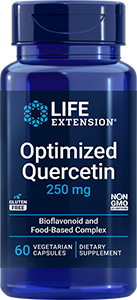
Newsletter
Newsletter
Meta-analyses affirm positive effects for omega 3, resveratrol against features of diabetes

Ferbuary 23, 2021
Two systemic reviews and meta-analyses published on January 22, 2021 in Critical Reviews in Food Science and Nutrition support an association between omega 3 fatty acid or resveratrol intake and a reduction in diabetes parameters in humans.
For the omega 3 meta-analysis, Felipe Mendes Delpino and colleagues at Federal University of Pelotas in Brazil selected 25 randomized trials that compared the effects of the fatty acids to a placebo in diabetes treatment or prevention. Studies were included that evaluated omega 3’s effects on insulin resistance, fasting blood glucose and/or hemoglobin A1c (a marker of long-term glucose control), all of which are increased in people with diabetes.
Comparison of 920 participants who received omega 3 and 901 participants who were given a placebo revealed a significant reduction in fasting blood glucose among those who received the fatty acids. When trials that documented omega 3’s effect on insulin resistance were analyzed, participants who received omega 3 also showed greater effects. "To the best of our knowledge, this is the first systematic review and meta-analysis from randomized clinical trials about the effects of omega 3…on parameters of diabetes," the authors announced. "Our results demonstrated that omega 3…could help in treating or preventing diabetes, decreasing insulin resistance and fasting blood glucose."
For the resveratrol meta-analysis, Dr Delpino and his associates included 24 randomized trials that examined the ability of the compound to help prevent or treat diabetes or diabetes parameters.
Resveratrol intake was associated with decreased insulin resistance in comparison with a placebo among participants in trials that evaluated the condition. When the results were analyzed according to trial length, the finding remained significant for studies of up to eight weeks duration.
In trials that reported values for hemoglobin A1c, a significant reduction occurred among resveratrol-treated participants that was significant among those in studies that lasted longer than eight weeks.
Fasting blood glucose was reduced in association with resveratrol compared to a placebo among diabetic participants.
"Resveratrol could help in treating or preventing diabetes, decreasing insulin resistance, glycated hemoglobin and fasting blood glucose," Dr Delpino and colleagues concluded.
They remarked that lifestyle changes and drug treatment are standard therapies for diabetes and that some of the latter have been associated with side effects that include gastrointestinal discomfort, poor appetite, nausea and diarrhea. Alternative treatments may be better tolerated and, with continued research such as the trials included in these meta-analyses, could prove to be a helpful addition to the treatment regimens of millions of people suffering with type 2 diabetes.
Products
Apply What You've Learned: Diabetes
- It has been estimated that by 2045 nearly 11% of the world’s population will be diagnosed with diabetes.1
- Type 2 diabetes is the most common form of the disease. Other types of diabetes include the autoimmune disease known as type 1 diabetes and gestational diabetes, which can occur during pregnancy.
- As of 2018, of the 34.2 million adults in the U.S. with diabetes, approximately 7.3 million were undiagnosed.2 Regular blood testing can detect newly acquired diabetes and monitor pre-existing disease. Blood tests and other assessments are also used to help determine the presence of metabolic syndrome, which is associated with an increased risk of diabetes and cardiovascular disease.
- In addition to a healthy lifestyle, including omega 3 fatty acids and resveratrol may aid in supporting healthy glucose levels. It should be noted that resveratrol does not naturally occur in the diet in the amounts evaluated in human studies.
References
- Saeedi P et al. Diabetes Res Clin Prac. 2019 Nov;157:107843.
- "Statistics About Diabetes." American Diabetes Association.
Featured Life Extension Magazine® Article
High Dose Vitamin K2 Builds New Bone
by Michael Downey
Osteoporosis is a disease characterized by weakening and brittleness of the bones which significantly increases the risk of fracture. Fractures of the vertebrae are associated with an eight-fold increase in mortality compared with the risk experienced by same-aged individuals who have not had this type of fracture. Among people over the age of 50, hip fracture increases the risk of dying within the following year by 20%.
Research conducted during the past couple of decades has determined that a dose of 45 milligrams of vitamin K2 per day is helpful to slow bone loss and reduce fracture risk. You heard it right: 45 milligrams rather than the usual 45 micrograms many of us use as daily vitamin K2. This high dose vitamin K2, available by prescription in Japan, is now available in the United States without a prescription.
Vitamin K2, along with other nutrients such as calcium and, if indicated, prescription drugs, can help restore bone health and protect against fracture risk
What's Hot
Health Concern
Diabetic Neuropathy
Diabetic neuropathy occurs when prolonged elevation of blood sugar levels damages nerve fibers causing problems with sensation and nerve function. There are several types of diabetic neuropathy, categorized by which nerves are affected. Diabetic neuropathy occurs in both type 1 and type 2 diabetes, and about 40–70% of diabetics will develop the condition.
Related Life Extension Magazine® Articles
Clove Extract Lowers Blood Sugar
A study published in 2019 demonstrated that polyphenol rich clove extract significantly lowers after-meal blood sugar by 21.5% in healthy people and by 27.2% in prediabetics.
Managing Type 2 Diabetes with Calorie Restriction
In his latest book, Life without Diabetes, Dr. Roy Taylor describes his innovative research on preventing and reversing diabetes with calorie restriction. In this interview, he outlines his surprisingly simple and effective plan








